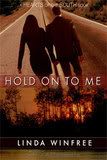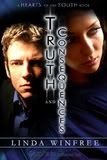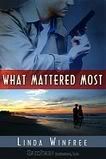Dry spells, rough spots & lead-in to my next post
Over the years, I've encountered my share of rough spots in writing. We all know them...those periods when you would rather clean your baseboards with a toothbrush than write, stare at that blinking curser with your blood pressure rising along with each blink, consider pulling your eyelashes out one by one because it would be less painful than wringing one more word from your soul (that idea courtesy of E).
These dry spells can extend for hours, days or weeks. Of course if you let them, they can spread into months and even years. *Shudder* The reason that thought scares the crap out of most of us is because we all know we're capable of getting to that edge and how little it would take to push us over.
I'm not having one of those moments now. In fact, I was going to write on a completely different topic, but I couldn't make it comprehendible without going through this first.
So, I'm going to share some of the ways I get over those rough spots, and hopefully, you'll share some of yours. Together, maybe we can put together a comprehensive list that can really keep us all writing!
Exercise: For me, only walking allows me to think through my plot, my characters, or whatever I'm stymied by at the moment. Running, swimming, lifting weights...none of those work; they require too much thought, attentioin or effort. But walking frees my mind up for a steady flow of thought, allowing me to link plot points and flesh out character issues. Walking is also toted highly by Julia Cameron the author of The Artist's Way. (Great book -- definitely worth picking up for inspiration on the writing life.)
Movie break: I picked up the habit of going to the movies several years ago. And I particularly love going alone in the middle of the day. The ultimate escape--two solid hours of adventure or fear or love or laughs, led by a group of creative gurus--actors, directors, producers, composers, etc. I always emerge from that type of field trip refreshed and ready to face my own writing again.
Book break: I have to admit, I'm not a big reader. But this was a great tip given to me by E: If you're struggling with a particular type of scene (i.e., love scene, dream sequence, action shot), pick up one of your favorite author's books from your keeper shelf, find that type of scene in their work and see how they handle it. That way you're not distracting yourself for the length of time it takes to read the entire book, just a scene or two, and you've got a fresh perspective on how you might (or even, might not) approach your scene.
Sleeping on it: I believe in the power of the subconscious mind working 24/7/365. And putting it to good use is absolutely painless. Before you go to bed, focus on an element in your WIP that's really stumping you. Either think about it while you're drifting off to sleep allowing it to turn in your mind, or write it on a notepad, develop some questions you haven't found the answers to and go to sleep. While you may not have the answer in the morning when you wake, don't be surprised if a remedy pops into your head at the oddest time over the next few days. (My Dad used to tell me that if I fell asleep saying my rosary, the angels finished my prayers for me. I think the angels work on my plot problems, too.)
TV: As a rule, I don't watch television, but I do have a few exceptions: Court TV, National Geographic Channel, TNT, A&E, History Channel, and a few other choice documentary channels. When your exhausted from either writing your little fingers off or hours of trying to solve a troublesome plot issue, vegging in front of the latest episode of Texas S.W.A.T or Forensic Files may give you the perfect solution. Worst case, material for future works will be embedded in your brain. An intriguing episode of North Mission Road or The First 48 will get any writer's sinister plotting juices flowing.
Research: There is nothing like some serious web surfing or a long, quiet visit to your local library to put your procrastination and avoidance to good use. When you're hurting for conflict, pick an element from your character's background (say a hope or dream) and check into it, search for some element you could add to toss more conflict your character's way. When you need to freshen a tired plot, choose a concrete element from your WIP (say the character's career) and see what information you could take, twist, and blend into the story to keep them from reaching their goal. I find that some of my best conflict, sometimes an entire subplot, comes to me during my research. In fact, Nora Roberts has said very much the same thing. (Of course, I could have gotten the whole idea from her.)
Worksheets: I often hit a rough patch for a reason--I don't know my characters well enough to make a scene flow right, or I don't have enough information on their backstory to justify their emotions, or I can't see how an element of my subplot is going to tie into the main plot by the end of the book. And when all that information is tied up in prose, the elements gets tough to pull apart and analyze. Even if you're not a plotter, even if you hate structure, filling out a worksheet can really clear up the issue. Sometimes, just the idea of filling out a worksheet can kick your brain into gear. Choose from character questionnaires, plot outlines, conflict sheets, scene cards...the list is endless. Check my website next week. I'll have some I've developed and others I've used available for download in the Writer's Corner.
Synopsis: Man, nothing fleshes out plot and conflict issues like a synopsis. I'm not the type who can write a synopsis before I've started the manuscript. I have to have a good idea of where I'm going to get it pulled together. And, in my opinion, it's the most painful way to go, but when all else fails, and your writing psyche in serious need of tough love, try putting your synopsis together. You've got to do it anyway, and it could really help you focus on your book's roots.
The old standbys: Of course everyone's heard write by hand if you usually type, or type if you usually write by hand. Or try starting a different scene, one that's really gnawing at your brain and go back to the point where you're stuck later. And the one that feeds into my fear if I stop I'll never start again--taking a break from writing all together to recoup and regroup.
Indulge in another creative outlet: This is my last suggestion/hint/idea, whatever you want to call it. Most writers' are creative people at heart and take on other creative endeavors as hobbies. I'd have to say that all my other creative endeavors ultimately led me to writing...but I digress. My craft of choice when my manuscript feels dry or my characters balk is knitting. All I do is straight knit...no pearling, no patterns. It's completely mindless, allowing my my hands to stay busy while letting my mind bliss-out, and with each stitch, I untangle another knot in my story.
But, more about that next post.
Share with us...what are your tips for getting through the rough spots?
These dry spells can extend for hours, days or weeks. Of course if you let them, they can spread into months and even years. *Shudder* The reason that thought scares the crap out of most of us is because we all know we're capable of getting to that edge and how little it would take to push us over.
I'm not having one of those moments now. In fact, I was going to write on a completely different topic, but I couldn't make it comprehendible without going through this first.
So, I'm going to share some of the ways I get over those rough spots, and hopefully, you'll share some of yours. Together, maybe we can put together a comprehensive list that can really keep us all writing!
Exercise: For me, only walking allows me to think through my plot, my characters, or whatever I'm stymied by at the moment. Running, swimming, lifting weights...none of those work; they require too much thought, attentioin or effort. But walking frees my mind up for a steady flow of thought, allowing me to link plot points and flesh out character issues. Walking is also toted highly by Julia Cameron the author of The Artist's Way. (Great book -- definitely worth picking up for inspiration on the writing life.)
Movie break: I picked up the habit of going to the movies several years ago. And I particularly love going alone in the middle of the day. The ultimate escape--two solid hours of adventure or fear or love or laughs, led by a group of creative gurus--actors, directors, producers, composers, etc. I always emerge from that type of field trip refreshed and ready to face my own writing again.
Book break: I have to admit, I'm not a big reader. But this was a great tip given to me by E: If you're struggling with a particular type of scene (i.e., love scene, dream sequence, action shot), pick up one of your favorite author's books from your keeper shelf, find that type of scene in their work and see how they handle it. That way you're not distracting yourself for the length of time it takes to read the entire book, just a scene or two, and you've got a fresh perspective on how you might (or even, might not) approach your scene.
Sleeping on it: I believe in the power of the subconscious mind working 24/7/365. And putting it to good use is absolutely painless. Before you go to bed, focus on an element in your WIP that's really stumping you. Either think about it while you're drifting off to sleep allowing it to turn in your mind, or write it on a notepad, develop some questions you haven't found the answers to and go to sleep. While you may not have the answer in the morning when you wake, don't be surprised if a remedy pops into your head at the oddest time over the next few days. (My Dad used to tell me that if I fell asleep saying my rosary, the angels finished my prayers for me. I think the angels work on my plot problems, too.)
TV: As a rule, I don't watch television, but I do have a few exceptions: Court TV, National Geographic Channel, TNT, A&E, History Channel, and a few other choice documentary channels. When your exhausted from either writing your little fingers off or hours of trying to solve a troublesome plot issue, vegging in front of the latest episode of Texas S.W.A.T or Forensic Files may give you the perfect solution. Worst case, material for future works will be embedded in your brain. An intriguing episode of North Mission Road or The First 48 will get any writer's sinister plotting juices flowing.
Research: There is nothing like some serious web surfing or a long, quiet visit to your local library to put your procrastination and avoidance to good use. When you're hurting for conflict, pick an element from your character's background (say a hope or dream) and check into it, search for some element you could add to toss more conflict your character's way. When you need to freshen a tired plot, choose a concrete element from your WIP (say the character's career) and see what information you could take, twist, and blend into the story to keep them from reaching their goal. I find that some of my best conflict, sometimes an entire subplot, comes to me during my research. In fact, Nora Roberts has said very much the same thing. (Of course, I could have gotten the whole idea from her.)
Worksheets: I often hit a rough patch for a reason--I don't know my characters well enough to make a scene flow right, or I don't have enough information on their backstory to justify their emotions, or I can't see how an element of my subplot is going to tie into the main plot by the end of the book. And when all that information is tied up in prose, the elements gets tough to pull apart and analyze. Even if you're not a plotter, even if you hate structure, filling out a worksheet can really clear up the issue. Sometimes, just the idea of filling out a worksheet can kick your brain into gear. Choose from character questionnaires, plot outlines, conflict sheets, scene cards...the list is endless. Check my website next week. I'll have some I've developed and others I've used available for download in the Writer's Corner.
Synopsis: Man, nothing fleshes out plot and conflict issues like a synopsis. I'm not the type who can write a synopsis before I've started the manuscript. I have to have a good idea of where I'm going to get it pulled together. And, in my opinion, it's the most painful way to go, but when all else fails, and your writing psyche in serious need of tough love, try putting your synopsis together. You've got to do it anyway, and it could really help you focus on your book's roots.
The old standbys: Of course everyone's heard write by hand if you usually type, or type if you usually write by hand. Or try starting a different scene, one that's really gnawing at your brain and go back to the point where you're stuck later. And the one that feeds into my fear if I stop I'll never start again--taking a break from writing all together to recoup and regroup.
Indulge in another creative outlet: This is my last suggestion/hint/idea, whatever you want to call it. Most writers' are creative people at heart and take on other creative endeavors as hobbies. I'd have to say that all my other creative endeavors ultimately led me to writing...but I digress. My craft of choice when my manuscript feels dry or my characters balk is knitting. All I do is straight knit...no pearling, no patterns. It's completely mindless, allowing my my hands to stay busy while letting my mind bliss-out, and with each stitch, I untangle another knot in my story.
But, more about that next post.
Share with us...what are your tips for getting through the rough spots?







3Comments:
Bubble bath. That one works for me everytime. Candles, a steaming bubble bath (maybe a glass of wine) and complete silence to think. Nine times out of ten, I get out of the bath with an abundance of fresh ideas.
The rule of six (or seven? I always get that wrong). List six things that could happen from an incident. By the time you get to five or six, you'll be hitting your creative juices and the really good ideas. (This one never works for me, but people swear by it!)
In addition to just TV...watching the news. You can get tons of great ideas by watching the depressing things that happen in this world (Okay, those of us writing RS can get tons of ideas. LOL).
Great, great ideas! I have used the rule of sixes and I've found it really works!! I'm loving the bubble bath idea too...but I've got to get a different tub!
Thanks E!
Joan
I like doing something that requires no brain energy. Raking hay, painting a deck, even scrubbing the floor will allow my mind to wander and break things loose. Usually I just need to get my butt out from in front of the computer and stop stressing over it, then it comes.
Post a Comment
<< Home